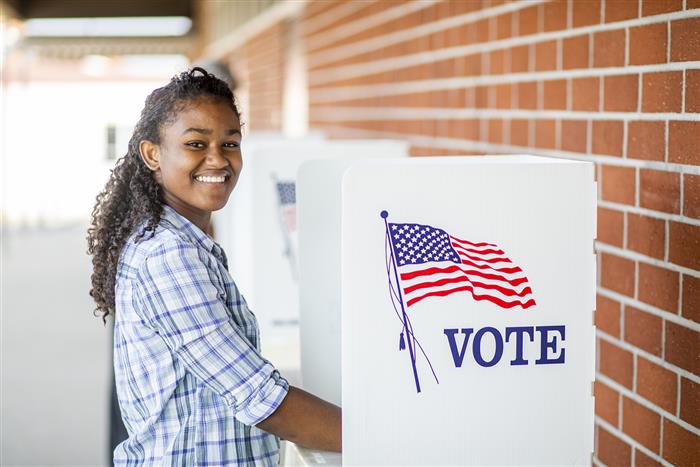Research indicates that college students are expected to vote in record numbers in today's midterm election, in stark contrast to the nation's lowest youth turnout and voter registration in 2014. While forty percent of 18- to 29-year-olds say they will "definitely vote" in the midterm elections, "doesn't mean they'll actually cast a ballot on Election Day." Here are a few of the issues in higher education on which voters will have a say:
-
Education policy at the state level, which is the "No. 2 issue in campaign ads for governors." There are 36 gubernatorial races taking place this midterm election, seventeen of which will see a new governor in office. Twelve states will elect governors who appoint the state school chief (commonly known as a superintendent).
-
Early childhood, K-12 and higher education funding measures for select states, including Georgia, Hawaii, Maine, Maryland, Montana, New Jersey, New Mexico, Oklahoma, Rhode Island, Colorado, Missouri and Utah.
-
Implementing "non-traditional", new funding sources for education, such as the legalization of recreational marijuana and looking at casino revenue to support education, career and technical education, dual enrollment programs, and more.
-
Legislation that could entitle teachers to a 20 percent raise in Arizona, as well as expanding the state's voucher programs from special-needs students to all students in the state.
-
Better pay and working conditions, as demanded by teachers who have repeatedly engaged in walkouts and demonstrations in five states this year. Along with very low rates of teacher pay, Arizona, West Virginia, Colorado, Kentucky and Oklahoma are “states with some of the lowest education funding rates in the nation.”
Low youth turnout in U.S. elections "is commonly attributed to lack of interest, lack of civic responsibility, and lack of knowledge or attention," but there are other obstacles that prevent college students from voting, such as poor access to polls - especially for students who frequently move. Some universities and colleges have gone as far as integrating voter registration into orientation, so that all new students are given the "opportunity and information to register to vote when they start college." Colleges have the opportunity to "increase student voter participation by teaching them that they can influence the issues they care about by voting."


